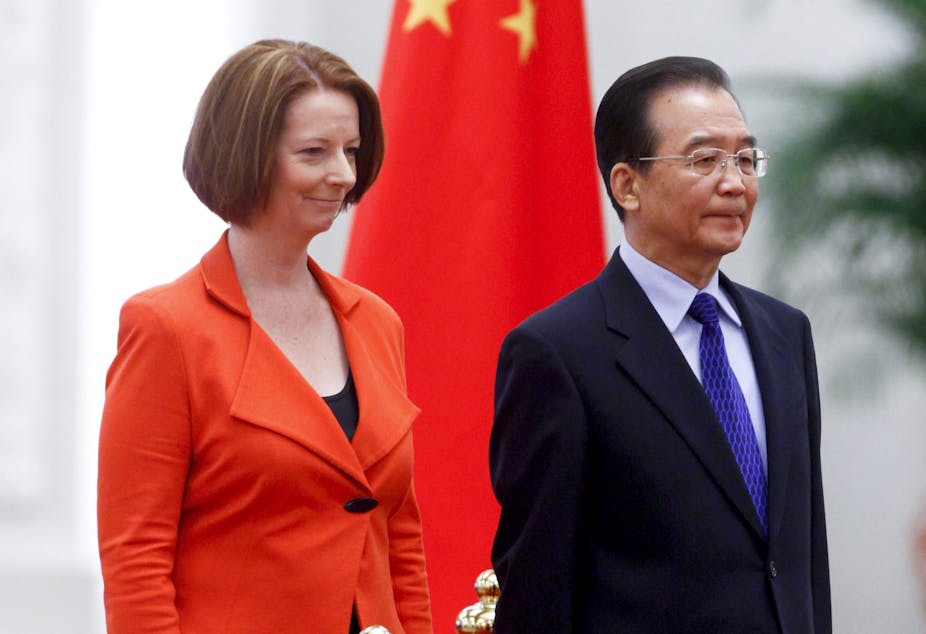Chinese intelligence operatives are said to have obtained the floor plans of ASIO’s new Canberra headquarters.
And at the same time, having been badly burned when Australian “tradesmen” installed bugs and surveillance devices during the construction of their current embassy building, the Chinese are bringing over every worker working on their new and improved facility.
Welcome to the wonderful world of intelligence agencies and intelligence agents, one where reality is frequently stranger than fiction. Not necessarily as exciting as the fiction of John le Carre and Ian Fleming, but stranger than we can imagine.
Every so often an incident occurs - sometimes a whole series of them - that draws back the curtain and gives us a glimpse into an incredible, counter-intuitive, world. In the world of intelligence, friends can be rivals and rivals friends. The closest of allies keep an unwelcome eye on each other, and rivals sometimes lend support when common interests are at stake.
None of this, however, means that we shouldn’t be concerned about recent news that the Chinese have succeeded in hacking into key US defense contractors networks. It may well be that they already know more about the F-35 joint strike fighters Australia is purchasing at great cost than we do.
The concern here is not so much that some of our defense systems might be compromised, but rather that China is able to leapfrog forward many years and save tens of billions of dollars on catching up with what is being billed as unparallelled, fifth-generation fighter technology.
Understandably, no-one in Canberra, Washington or Beijing is talking about these matters and what has been lost or gained. To confirm information - no matter how vague - as being true or false stands to add to its value. We simply have to assume that remedial action has been taken to diminish the value of information obtained.
In the 21st century it is virtually impossible to imagine contractors and builders putting together a sophisticated new building or jet fighter program without sharing terabytes of data on a weekly basis. The only way to keep this data safe is to transmit nothing, store nothing online, physically hand over secure hard drives and leave nothing within reach of a machine with an internet connection.
But we’ve become so dependent upon networks, clouds and real-time data synchronisation that going off the grid has become unimaginable. Mafia dons in Calabria communicated on scraps of papers exchanged, read and then swallowed or burnt by the recipients. And many modern terrorist masterminds have adopted a similar pattern of connectivity abstinence. Al-Qaeda leader Osama bin Laden lived in an ugly bunker of a house without a telephone line, an internet connection, or even a garbage service.
The digital age is accompanied by a ratchet effect: we can move forward with ease but find it virtually impossible to go backwards by even a notch. No one wants to go totally off the grid but government agencies can (and must) get much better at the business of cyber security. Part of this is a matter of more sophisticated hardware and smarter software but very often the critical component is “wetware”: the human element. We are by habit too predictable and too lazy for our own good and we all need to learn to work smarter.
This is not just something for our spooks and senior civil servants to be worrying themselves about. We need to recognise that a large part of global espionage is concerned not with secrets of state but rather with secrets of commerce.
It’s odd then that we were so surprised to learn that our South Korean trade partners were engaged in industrial espionage to get the upper hand on determining the price of the beef we were selling them. Nor should we be surprised by allegations that Australia bugged East Timorese cabinet rooms during the 2004 negotiations over revenue sharing from the “Greater Sunrise Gas” project.
We have seen remarkable admissions this week by the heads of some of our leading corporations that they need to do better at cyber security. For understandable reasons the major banks don’t wish to talk about cyber attacks, much less disclose how many hundreds of millions of dollars they lose to fraud and hacking. But we should listen carefully when they speak.
It is high time that we realise we live in the era of the digital cloud and shouldn’t be going off to bed with the windows open and the front door unlocked.
It is difficult to know what lies behind these reports of ASIO’s cyber espionage woes but if they serve to wake us up then they will have done us a great favour. If only we have ears to listen and eyes to see - because others surely do.

